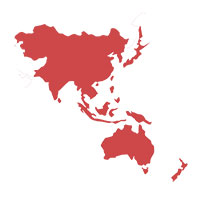Who’s Covering the Climate?
Lachie McKenzie | December 8, 2011.
Nobody wants to talk about climate change anymore because it’s too depressing and uncomfortable.
People used to feel like they could make a difference without compromising their way of life. They no longer feel this way.
Last year, WikiLeaks dominate the media, drowning out what little coverage of the Cancun climate negotiations there was.
This year there is simply little to talk about, or so it seems.
The last few COPs have been highly covered by the media, and there were great expectations. International viewers have been let down with the decisions made, and it seems that they’ve lost interest.
People are more aware of the realities of climate change than before. However, they have less hope that a solution will be reached at an multilateral level now that they’ve lived through Copenhagen via their newspapers.
In Australia there was a recent study of how newspapers covered climate related stories by the Australian Centre for Independent Journalism (ACIJ).
The Age was described as having ”the most in-depth coverage of climate science,” which is understandable considering Uncle Rupert has no fingers in this pie.
This is unlike Murdoch’s national treasure, The Australian which doesn’t have an environment section on their website. They have a ‘climate’ section under ‘national affairs’. Like the climate isn’t an international issue.
The Australian has made progress through publishing articles about the effects of climate change, such as increased disease spreading, migrations, etc. This is an important step, because it appears that the war against science is beginning to wind down. It is now a question of ethics, justice, international relations. They’ve admitted there is actually a problem to face.
The study talked about how newspapers reported on the Australian Government’s carbon pricing scheme, citing Fairfax as more balanced and News Limited as less balanced.
(The picture explains the story, it’s taken from The Age’s coverage of this study).

We cannot in all seriousness base The Australian’s ‘green credentials’ on whether they support a carbon tax or not. Questions of taxation, effectiveness, and international realities are fair game for debate. Fairfax Media is just trying to spin this study’s findings to make themselves look more balanced or ‘neutral’, but in reality this boasting may just make them seem more partisan or ideologically biased.
Our level of certainty and precision with the science of climate change is similar to our level of precision over the theory of evolution. You can never prove it absolutely, and there will always be ‘agnostics’ like former PM John Howard, but there are few rational adults who can mount a serious objection to scientific observation of the link between releasing various gases into the atmosphere and dramatic climate change.
The real problem lies in questions of cooperation and negotiation between nations, industries, and rich consumers. We’ve all admitted that the goal is to drastically reduce emissions, but the means is still up for debate. And The Australian can and should be as skeptical as it likes in regard to these questions.
Headlines, on the other hand, were less balanced than the actual content of articles, with neutral articles more likely to be headlined negative (41%) than positive (19%) in News Limited papers.
This is a classic tactic that is hard to highlight and even harder to punish, but very effective in convincing the casual reader who might not read the entire article, leaving them misinformed and misled.
“Carbon tax” was generally the preferred term for opponents of the policy, whereas proponents preferred the term “carbon price”.
The Australian still misleads people when they cover studies and reports, such as a review for the IPCC
“While there has been an increase in warm days and a decrease in cold nights, the likely impact on future weather events would not be evident for decades because of natural variability, the scientists say in a key review prepared for the UN’s Intergovernmental Panel on Climate Change.” – The Australian, 19 November 2011.
Obviously, climate change happens over centuries and millennia, not decades. This kind of deception is intended to (or at least has the effect of) leading the reader to dismiss the link between emissions and climate change.
Sources of information for stories also reveals the sinister link between big media and big business.
Newspapers like The Australian and The Age are allowed to masquerade as independent entities, but they are businesses, which relate to other businesses.
According to the ACIJ study, business sources received more coverage than all civil society sources together, including unions, NGOs, think tanks, activists, members of the public, religious spokespeople, scientists and academics.
Moreover, fossil fuel lobby and other businesses opposed to the policy received very strong representation, whereas clean energy and other businesses in support of the policy received low coverage.
You can’t demand each paper to write 50% positive articles about a carbon tax and 50% negative articles and then call it ‘balanced’. Because imagine the policy was a racist one, or one that undermined civil liberties – you would naturally expect ‘unbalanced’ reporting.
The Australian Broadcasting Corporation is the most comprehensive in its coverage of the climate negotiations, carbon tax, debates over the science, and the problems we now face.
Public mood will generally dictate what news agencies report. In Europe, debt and the economy are paramount. For the Middle East it is political representation. For the USA it is the presidential election, wars, #Occupy, and fixing the economy.
Something needs to capture the public mood before the newspapers follow suit.
By Lachie McKenzie, photo by Laura Owsianka.













comment